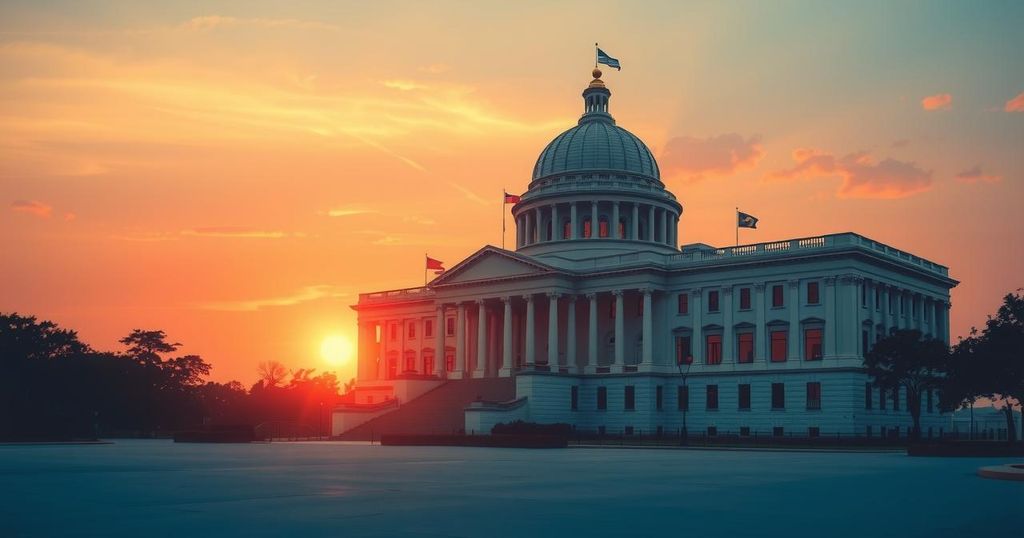Yamandú Orsi will be inaugurated as Uruguay’s new president, marking 40 years of democracy. He replaces Luis Lacalle Pou and faces a fragmented political landscape. Notably, leaders from Cuba, Nicaragua, and Venezuela were excluded from the ceremony. Orsi emphasizes regional cooperation as part of his administration’s foreign policy agenda.
Uruguay is set to officially welcome Yamandú Orsi as its new president this Saturday, commemorating four decades since the nation’s return to democratic governance. As the former mayor of Canelones, Orsi is poised to take over from Luis Lacalle Pou in a ceremony scheduled to commence at 14:00 local time (17:00 GMT). His presidency will extend until March 2030.
As the third president hailing from the left-wing Frente Amplio coalition, following predecessors such as Tabaré Vázquez and José “Pepe” Mujica, Orsi’s ascension reflects Uruguay’s enduring tradition of peaceful political transitions, reinforcing its status as one of South America’s most stable democracies.
The inauguration is anticipated to feature 185 representatives from 65 nations, with notable figures in attendance including King Felipe VI of Spain and the presidents of Brazil, Chile, and Colombia, among others. Orsi will take his oath at the Legislative Palace and will subsequently address the General Assembly, before continuing to the Adela Reta National Auditorium for the latter part of the ceremony, which was relocated due to forecasted rain.
Controversially, outgoing President Lacalle Pou did not extend invitations to the leaders of Cuba, Nicaragua, and Venezuela, citing their lack of “full democracy.” The incoming foreign minister, Mario Lubetkin, conveyed regret over this exclusion, emphasizing Uruguay’s commitment to inclusivity towards all nations with which it maintains diplomatic relations.
Orsi, known for his background as a history professor and his collaborative leadership style, is anticipated to encounter political hurdles, particularly given that his party does not hold a Senate majority, although it maintains control of the lower house. Foreign minister Lubetkin has underscored a focus on regional cooperation, asserting, “We want to facilitate Latin American and Caribbean integration,” designating the attendance of numerous regional leaders as a pivotal signal of this intention.
In conclusion, Yamandú Orsi’s inauguration as Uruguay’s president marks a significant moment in the nation’s political landscape, highlighting its commitment to democratic principles. With an emphasis on regional cooperation and inclusivity, his administration will navigate challenges while striving for effective governance. The presence of dignitaries from various countries further signifies Uruguay’s diplomatic engagement on the international stage.
Original Source: en.mercopress.com




